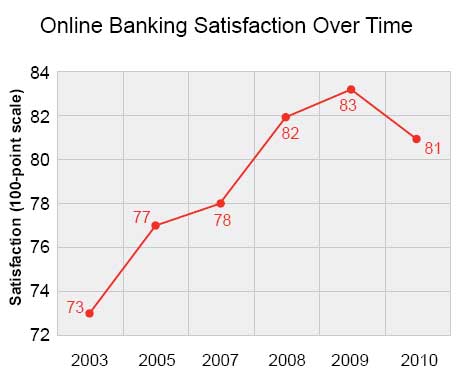How much influence does age have online banking behavior? According to a recent report from McAfee, age actually plays a large role in how consumers conduct their online banking. McAfee recognized three distinct age groups that had distinct online banking patterns as well.
The first group is the “Competent but Careless” bracket that consists of individuals between the ages of 18-24. Adam Wosotowsky of McAfee Labs told us that this group has grown up on the Internet and that they are less likely to use antivirus protection.
“They feel very confident about their ability to use computers,” he said.
The second group is the “Confident but Casual” bracket, which includes consumers from 25-45. Wosotowsky explained to us that, since this group has seen the Web develop, they are more aware of issues that can happen. While they are more paranoid than the younger group, they are still not as cautious as they should be.
The last group is the “Conservative and Cautious” category and, of course, is made up of people over the age of 45. Most of this age group is not as familiar with the Web as the other groups are and, therefore, is very cautious in their behavior.
Does your age group match how you behave online? Let us know.
Through online banking, each of these age groups is susceptible to phishing attacks, infections, drive-by downloads, and more, all of which could cause very harmful results. Speaking of drive-by downloads, specifically, Wosotowsky said, “Once you become infected, then at that point in time, the botmasters have full control over your machine.”
Fortunately, there are steps that users can take to help them avoid these attacks. For starters, Wosotowsky recommends that consumers be on the lookout for copycat sites. For instance, the title of your bank might be in the domain name somewhere, but if the site does not have the exact same url as your bank’s website, don’t click on it.
Secondly, he warns against clicking on links in emails. If you get a notification in your email asking for username and password verification, go directly to your bank’s website to see if the notification is legitimate. If it is, you can proceed with offering your information, but if not, you have saved yourself from getting hacked.
Even though this sounds simple, Wosotowsky says it is always a good idea to have strong passwords or phrases. He actually believes that long phrases are more effective than just a password.
Fourthly, for those consumers that utilize mobile banking, it is very important to find an app directly from your bank or financial institution. Wosotowsky told us that there are a lot of third party banking apps to choose from that are bogus.
Wosotowsky also believes that consumers should protect themselves through antivirus measures. He said that it not 100 percent bullet proof but that it is better than nothing.
Are you taking proper precautions that you need to take in regards to your online banking habits?





 "However, recent successful arrests in the US and the UK show that law enforcement, with the help of the banks, their customers, and the industry, are capable of tracing these people down and get them behind bars," he adds. "More efforts are needed for this good start to become truly successful. Financial fraud can be stopped from spreading if financial organizations and customers continue to improve security and work with law enforcement to go after cyber criminals."
"However, recent successful arrests in the US and the UK show that law enforcement, with the help of the banks, their customers, and the industry, are capable of tracing these people down and get them behind bars," he adds. "More efforts are needed for this good start to become truly successful. Financial fraud can be stopped from spreading if financial organizations and customers continue to improve security and work with law enforcement to go after cyber criminals." 